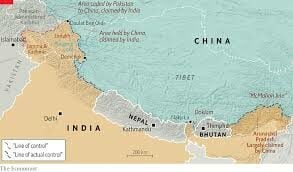National Commission for Refugees, Migrants and Internally Displaced Persons (NCFRMI) has declared its commitment to supporting measures to achieve precision in nationality screening for refugees as it contributes to building staff capacity and strengthening the integrity of the asylum space.
More so, NCFRMI said it remains very committed to working with partners towards the provision of sustainable as well as durable solutions for persons of concern, including refugees.
The federal commissioner, Hajiya Imaan Suleiman–Ibrahim, disclosed this in Keffi at a two-day thematic group discussion on nationality screening for refugees.
Suleiman-Ibrahim said nationality screening for refugees is therefore essential in determining eligibility for refugee status.
She said in Nigeria, some asylum seekers, especially from neighbouring and nearby countries such as Cameroon and Central Africa, with whom Nigeria share common boundaries and or ethnic and cultural ties and high incidents of inter-marriages and cross-border movements, present cases with complex nationality scenarios.
“Some of the asylum seekers have Nigerian parents, great grandparents, spouses or children. Establishing nationality of claimants with such ties may not be easy for RSD and litigation officers.
“You may also recall that Article 1E of the 1951 Convention Relating to the Status of Refugees, precludes conferral of refugee status on persons who have surrogate protection – meaning they enjoy the same rights as nationals in their countries of residence.
“This protection is regarded as capable of granting persons better protection than refugee status. In the Nigerian context, “Naija wives” – Non-Nigerian wives married to Nigerian men and to a lesser extent the special immigrant status given to non-Nigerian men married to Nigerian women are in contemplation here,” she said.
“Nationality issues are governed by national laws. In Nigeria, Chapter Three of the Constitution of the Federal Republic of Nigeria (as amended) specifies qualifications for different categories of citizenship in Nigeria.
“Should an asylum seeker fall within any of the citizenship categories, he may not qualify for refugee status. As the experts guide us through the different citizenship categories, the special statuses and the extent of protection they provide vis a vis international refugee protection,” she added.










